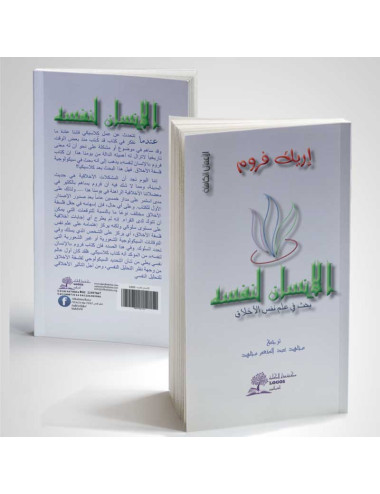The Art of Counseling
This book is one of the few books and the ever-increasing, which explores a very important area: relationship of mutual and continuous interaction between religion and mental health.
- Out-of-Stock
0.124 kg - 0.858 kg
This book is one of the few books and the ever-increasing, which explores a very important area: relationship of mutual and continuous interaction between religion and mental health.
Berdyev's life was nothing but a triangular struggle against the aristocratic environment in which his family belonged and lived in it, against the revolutionary Marxist environment in which he lived during his first youth and against the orthodox environment in which he lived a mature period in a certain sense.
The book deals with the historical roots of the idea of alienation according to Erich Fromm, and the various manifestations of the idea of alienation as it appears in the writings of modern and contemporary philosophers, especially those influenced by Fromm such as Hegel, Marx, Heidegger, Marcuse and others. It also deals with the different dimensions of man’s alienation from himself and from his world, according to Fromm, using a comparative analytical approach.
A classic in its own time...The original self-help treatise that has inspired countless numbers of men and women throughout the world. Learn how love can release hidden potential and become life's most exhilarating experience. In this fresh and candid work, renowned psychoanalyst Erich Fromm guides you in developing your capacity for love in all its aspectsromantic love, love of parents for children, brotherly love, erotic love, self-love, and love of God. Read by a professional narrator...
The Philosophy of Humanistic Ethics vs. The Philosophy of Authoritarian Ethics
The Philosophy of Subjective Ethics vs. The Philosophy of Objective Ethics
Anthropology
The Heritage of Humanistic Ethics Philosophy
The Philosophy of Ethics and Psychoanalysis
Carl Rogers was a stubborn warrior when he entered many battles - battles in the field of treatment of income with scientific medicine and psychiatry, who tried to prevent psychologists from treating patients..
The late Carl Rogers, founder of the humanistic psychology movement, revolutionized psychotherapy with his concept of client-centered therapy. His influence has spanned decades, but that influence has become so much a part of mainstream psychology that the ingenious nature of his work has almost been forgotten. Houghton Mifflin is delighted to introduce this preeminent psychologist to the next generation with a new edition of this landmark book.
Man's Search for Himself by Rollo May is a captivating and introspective guide that is a perfect fit for readers seeking a deeper understanding of themselves and their place in the world, particularly those grappling with anxiety, depression, and feelings of emptiness who are looking for a nuanced and insightful exploration of the human condition.
In this book, the author presents and explores this approach, its theory, history, the therapy process, primary change mechanisms, empirical basis, and future developments. This essential primer to cognitive–behavioral therapy, amply illustrated with case examples featuring diverse clients, is perfect for graduate students studying theories of therapy and counseling as well as for seasoned practitioners interested in understanding this approach.
A person has needs in life, and the needs are arranged and gradual, some of them are basic and necessary, some of them touch his physical needs, and they are the ones that preserve his survival and presence in life, and some affect the mental and psychological side, and they help in his advancement, progress and creativity.
An examination of the Old Testament and later Jewish writings explores the evolution of the basic concepts of God, Man, history, sin, and repentance, and demonstrates the relevance of traditional beliefs in the contemporary world
The thesis of the book is that modern man, freed from the bonds of pre-individualistic society, which simultaneously gave him security and limited him, has not gained freedom in the positive sense of the realisation of his individual self.
Freedom, though it has brought him his independence and rationality, has isolated him, and made him anxious and powerless.
This isolation is unbearable and the alternatives he is confronted with are either to escape from the burden of this freedom into new dependencies and submission, or to advance to the full realisation of positive freedom which is based on the uniqueness and individuality of man.











